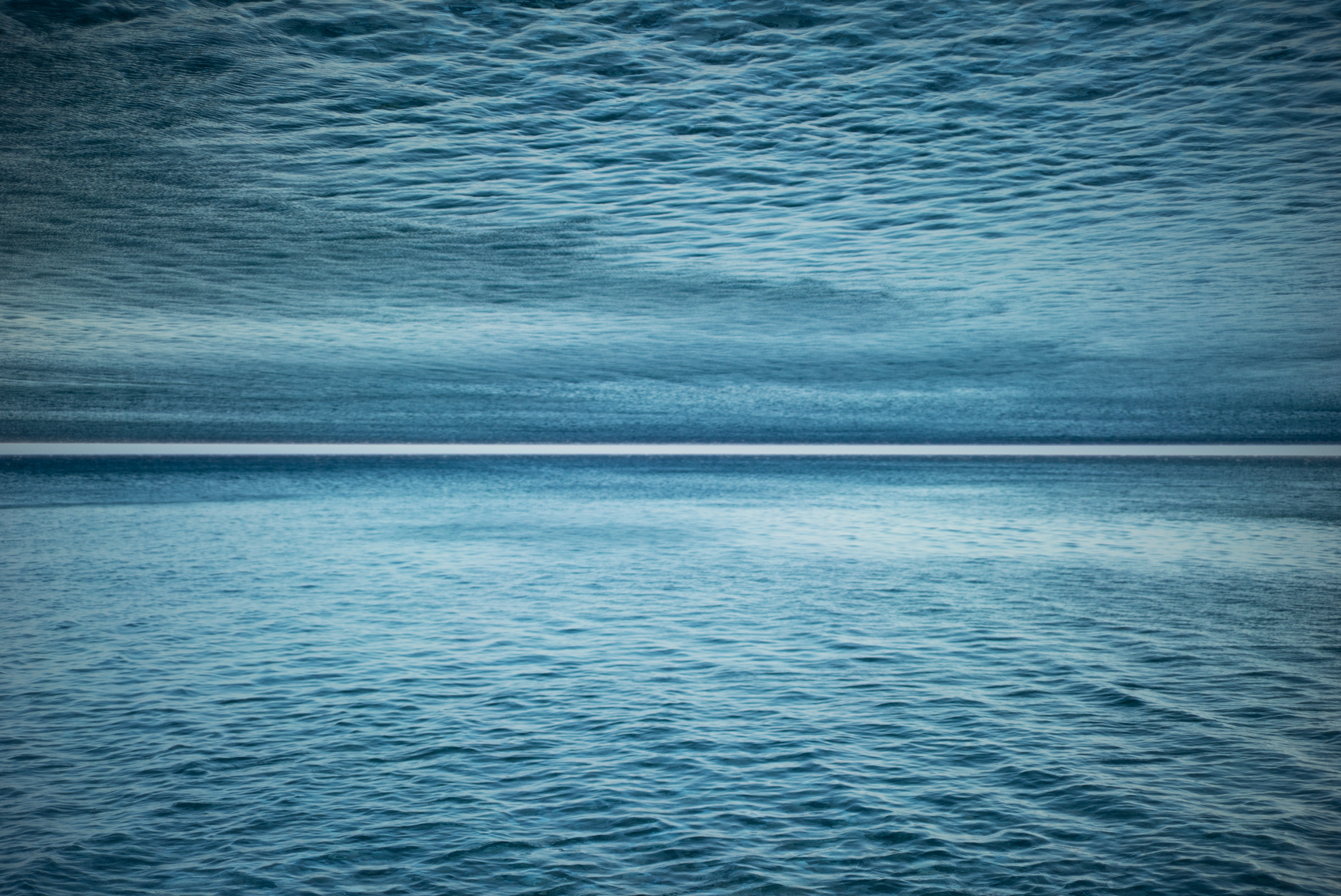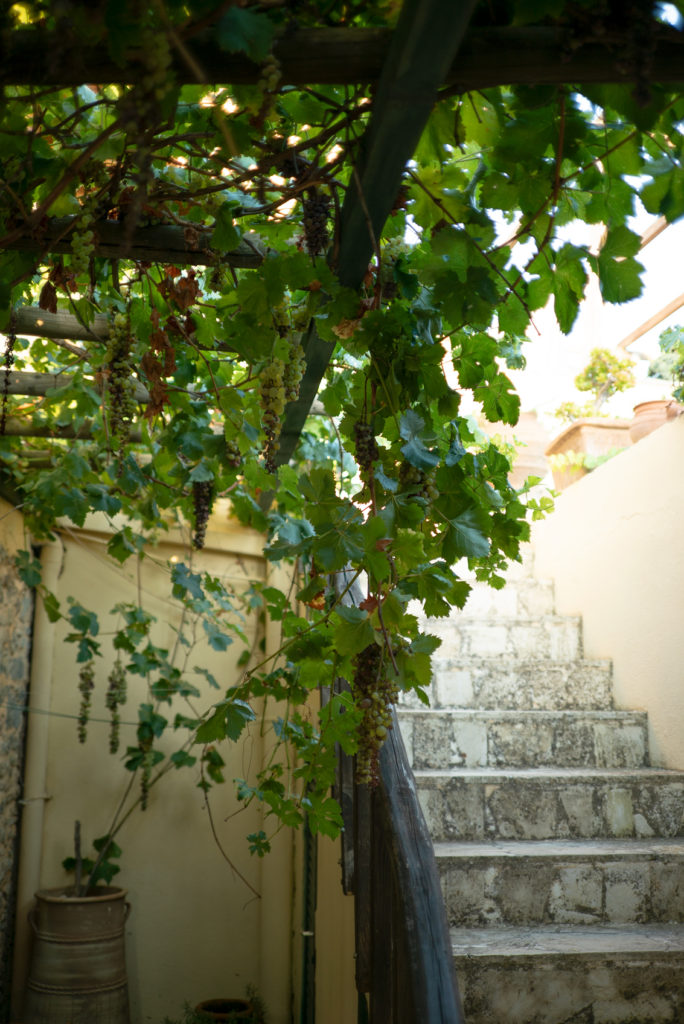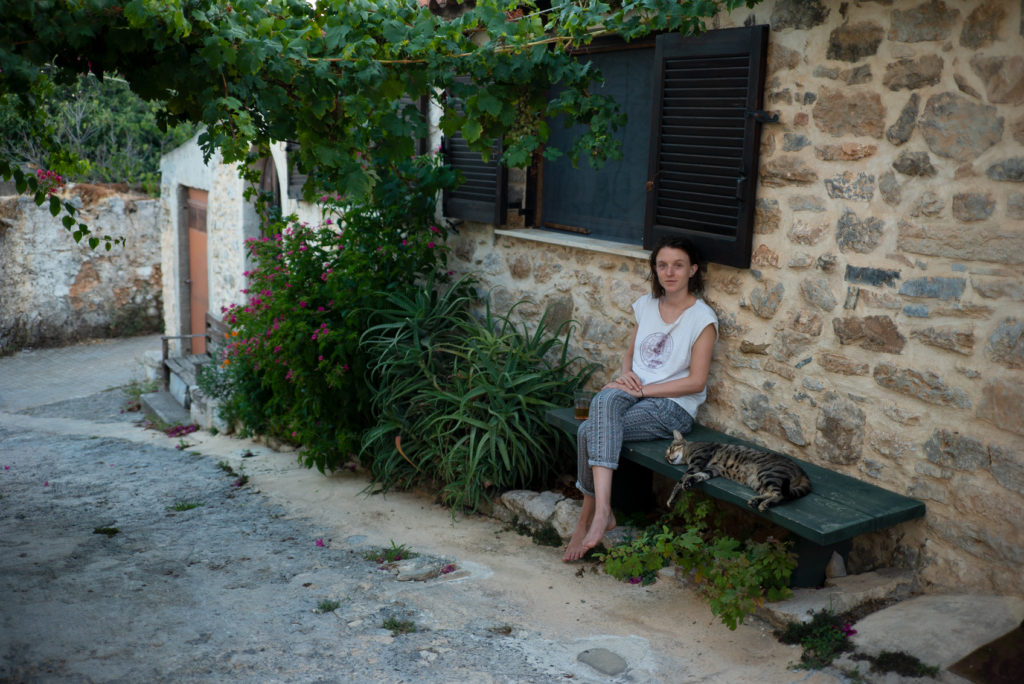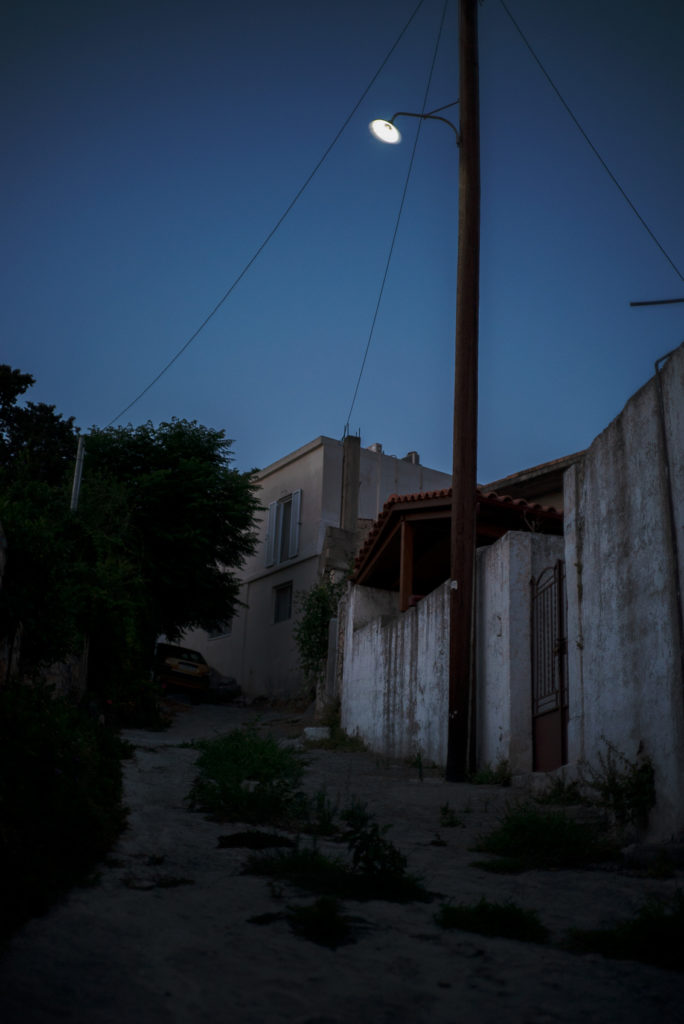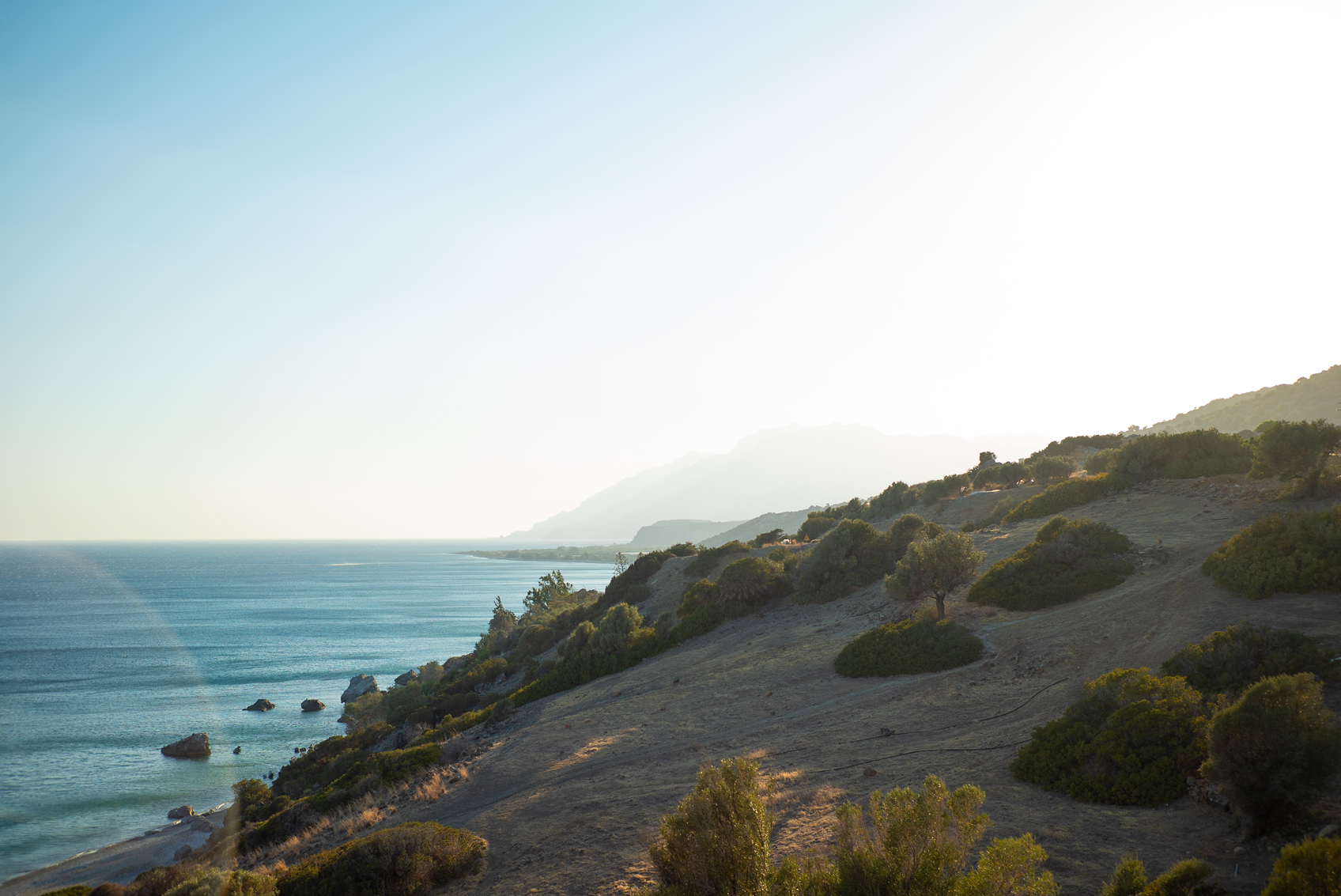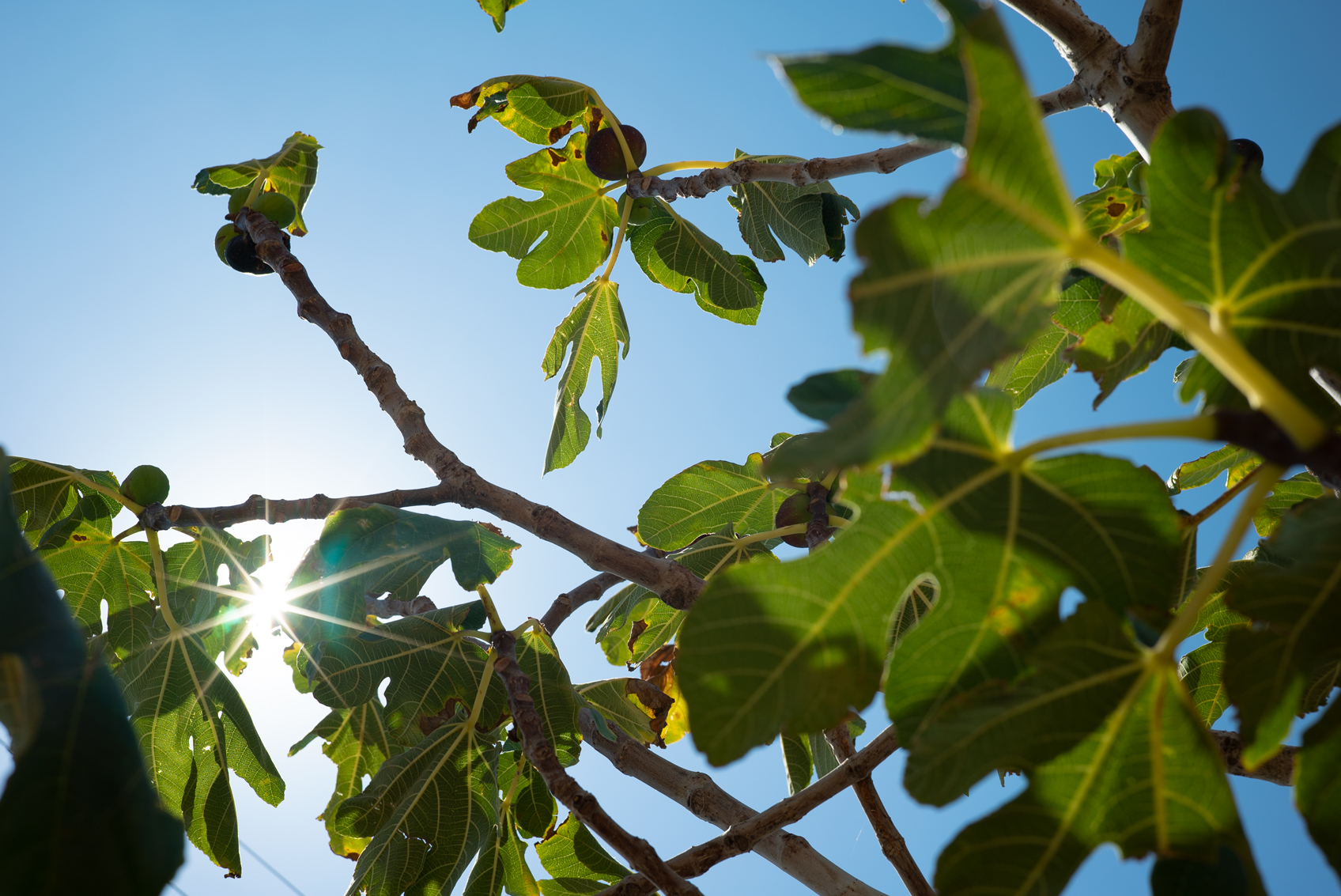August 5th, 2018
We arrived on the island of Crete feeling out of breath and pressed for time; overcrowded and undernourished in a fundamental summer way that requires salt water and earth.
For the first few nights, we stayed in the middle of the island, in a village so small its only open business was a taverna, outside of which men in folding chairs lined the main street day and night, smoking slowly and watching things pass. Women in the village moved more, in huddled groups of three or four. Children raced completely unattended up and down the narrow whitewashed stone streets.
The first night we were there, our host invited us to his house ‘for a meeting.’ We asked what kind of meeting he meant, and he looked at us like we were aliens and said, ‘you know, to drink wine,’ and then pointed towards his house and left. The ‘meeting’ that night turned out to be a dinner; the table overburdened with vegetable dishes from our host’s farm. There we ate tomatoes and three kinds of cucumbers, bread made with carob, olives, eggplant, wild greens with olive oil and lemon, cubes of feta. People arrived slowly, bearing grapes from their gardens and wine in plastic bottles; they tuned musical instruments; the food seemed to stretch endlessly. Soon there was an impromptu concert going on: lyre and guitar, and everyone sings, everyone stamps their feet here. We were served raki, a clear and potent alcohol made from grape stems, and as midnight slipped past we took turns looking through a huge telescope to see Mars, Jupiter, Saturn (here, of course: Ares, Zeus, Kronos). Saturn is blue, through a telescope. It hangs with its rings tilted just so, a hat perfectly placed.
The second night, we were driven through thirty minutes of olive trees and prickly pear cactuses to another village, where a woman in a small taverna brought us plates and plates of food: meatballs, more wild greens, potatoes with small zucchinis. When we arrived back at the village where we were staying, we were told that we had been invited to the neighbors’ house, where a second dinner was immediately pressed upon us. Not a casual light snack. A. Second. Dinner. The kind where as we sat with already full plates of roasted vegetables and meatballs and salad, soft stewed beef was ladled over pasta and passed towards us, with cries of this is very good, you must have.
In the mornings, we were left bags full of tomatoes, cucumbers, peppers, bread. Eggs so fresh they sometimes had a feather attached.
It wasn’t long before we began to think of Crete as a place where there is always enough. There is enough food. There is enough time. There is enough sunlight. The ocean is close enough. The road – though it surely doesn’t look it – is big enough for two lanes. When we bought olives in a seaside supermarket, the woman working insisted, by way of proffered spoon, that we try every kind she sold. Fig trees and bougainvillea growing wild by the side of the road assured us that even though the blinding sun had wilted most things smaller than an olive tree, there is enough water.
Being taken into the homes of complete strangers and fed what they had cooked for their families told us, of course, much more than there is enough food. It suggested an alternate way of being human: that though we had arrived on the island feeling self-protective and overwhelmed, we could be taken in and cared for. It could be easy; it could be a natural tendency: to feed people who come to you hungry, to offer warmth where they might be expecting the usual standoffishness of strangers.
During the first night we spent on Crete, while his friends played music, our host looked at us and said, there is music for singing, and music for dancing. This is for singing.A little while later, in the middle of a song that caused him and his friends and everyone else in the room to clap their hands, to stomp their feet, he said, this – well, you can see.
We could see – it was music for dancing.
August 10th, 2018
There are a thousand stories to tell about the ten days we spent on Crete.
There is the story of the food, which comes from the sea and from the land. It is drenched in olive oil from olive trees across the street. It is made by women, mostly, who stay in the kitchens of the tavernas, by choice or by custom, while men jog back and forth with laden platters. This story is full of words like olive, feta, tomato. Eggplant, okra. Fish. Yogurt, honey, egg. Raki. Zucchini. Zucchini. Zucchini.
There is the story of the stories. We learned that in mythology, cicadas were once people, but when the gods gave humans music, some of them loved it too much to go on with their regular lives. We walked the halls of King Minos’ house. In the middle of the island, there is a cave where it is said Zeus was born.
There is the story of my body, which for a week was freckled with mosquito bites from the night I sat outside with the one cat who would befriend me, watching the sun set behind the grape vines and feeling a profound disconnect between the life I was living and the life that seemed to be going on without me, still, across the ocean. My legs were covered in scratches from trampling thistles as I picked wild figs on our way to Kastri. My skin is thicker, softer, browner, from every day spent soaking in the salted sea and hiding from the radiant sun.
I always want to write it all, but I know it’s never possible. But out of love or errant Sisyphean tendencies (or both), I have struggled with wanting to write all of Crete.
I want to include the generosity of our hosts and the subtle ways I must be a better person now. But I don’t want to assume I know what their lives are like, or write like this is some kind of travel blog, like I learned a lesson on Crete and then left it, sitting there in the Mediterranean waiting for the next twenty-something American to come, consume, move on.
I want to write about how I know this is my life. I could open my eyes under the Libyan sea. I could float in it, effortlessly. I could see four planets strung like beads in the night sky the whole time we were there. But I also want to write about how no matter how I work to stay in the moment there are moments where it feels like I am missing something, or moments where I feel like I am untethered, like a planet racing in the sky, unable to slow my orbit enough to really feel where I am.
I could write about how fortunate I feel. There is barely a ‘but’ here. The privilege, the luck, the extreme goodness of the forces that have conspired to allow me, in my body, in this life, to float in the empty ocean off the southern coast of Crete and then go sit at the edge of the sea and eat briny moistened fish from that same ocean: it is the pinnacle of some kind of experience. It is a pivotal, central thing. But I have found that when people tell me I am lucky, what they usually want is for me to confirm their excuse for why they, personally, couldn’t do this. And while there are many people who couldn’t do this, I am usually talking to people who, if they prioritized differently, could. I don’t consider it my job to justify my own choices to anyone, but I also won’t stand in as a symbolic radical cultural outlier (especially if I consider the ways in which my life is not at all radical). What Sam and I are doing makes us neither heroes nor cautionary tales. But we are fortunate.
I could write about how grounded I feel. My certainty in the sovereignty of my own choices; the cosmic ways the different pieces of my life seem to be singing in harmony this year. But I would then, of course, have to mention that every two weeks, like clockwork, I have to leave a room in tears, overcome by the constantly swinging pendulum between ‘that over which I am in complete control’ and ‘that which is happening, eternally, without my consent or participation.’
I am somehow both raw, open, exposed; and closed, isolated, self-contained. The salt water heals my scratches, my blisters, my ragged breath. But it stings.
I am homesick, but I don’t know where we’ll live when we return.
I was suspended in the sea, and I feel suspended, here. It is a very natural metaphor; it is another story I can tell.
And though I know it does not encompass everything, I am sticking with gratitude. A chest to the sky kind of thank you. Acceptance and celebration, as bone-deep as I can manage, of all of this: all of its contradictions, all of its ecstasy.
